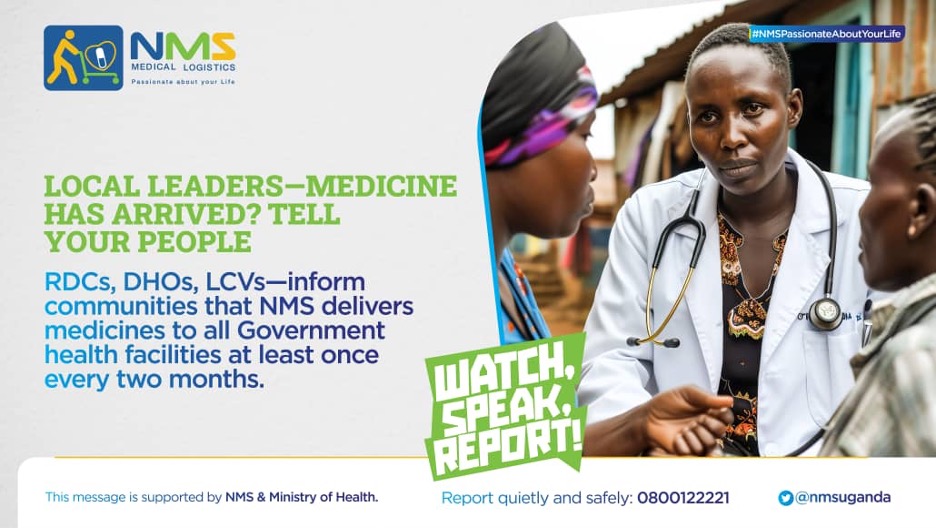A Ugandan MP has urged local leaders to be more involved in monitoring drug deliveries at health centres to curb widespread theft of government-supplied medicines.
Hon. Tom Bright Amooti, who represents Kyaka County, said communities cannot protect medicines if they are unaware of what has been delivered.
“First of all, you cannot protect what you don’t know,” Amooti said. “It is my humble appeal that when the drugs have been supplied in these health centres, the local leaders should be involved and get to know what has been supplied. This will help our people to know what is in the house.”
His comments come after drugs were stolen from Migongwe Health Centre II in Kyegegwa District, in a case allegedly involving a security guard who had knowledge of the consignment.
Drug pilferage is a persistent problem in Uganda’s health sector, with anti-malarials, HIV medicines, antibiotics and even blood supplies frequently stolen.
The government has introduced several measures to combat the practice, including marking drugs with “UG” and “Not for Sale” labels, rolling out digital tracking, and public awareness campaigns.

But Amooti said more needs to be done, particularly to involve communities directly. “The moment local leaders know exactly what is delivered to a health facility, they can help protect it. If the people are in the know, it becomes harder for thieves to operate unnoticed,” he explained.
He urged the Ministry of Health and Resident District Commissioners (RDCs) to make drug delivery records accessible to LC officials and health unit committees.
“We are losing medicines bought with taxpayers’ money,” Amooti said. “This is not just theft—it is the denial of treatment to the very people these drugs are meant to save.”
Ugandan police told to step up fight against stolen medicines
A retired senior policeman in Uganda has urged the country’s security forces to play a more active role in protecting public medicines from theft and illegal sale.
Morrison Komakech, who once served in Busia, said the police should not wait for theft to occur before acting. “The evolving nature of drug theft requires a proactive law enforcement approach,” he told local media.
Uganda’s government medicines, supplied by the National Medical Stores and clearly labelled “Not for Sale”, are often found in private pharmacies or smuggled across borders. While some are recovered in raids, campaigners say patients are left without treatment in the meantime.
Mr Komakech suggested that police work more closely with health officials and local administrators to investigate suspicious activity, carry out spot checks in clinics, and shield whistleblowers from reprisals.
He said police were not just keepers of law and order but also guardians of public health, and their vigilance could help save lives.











